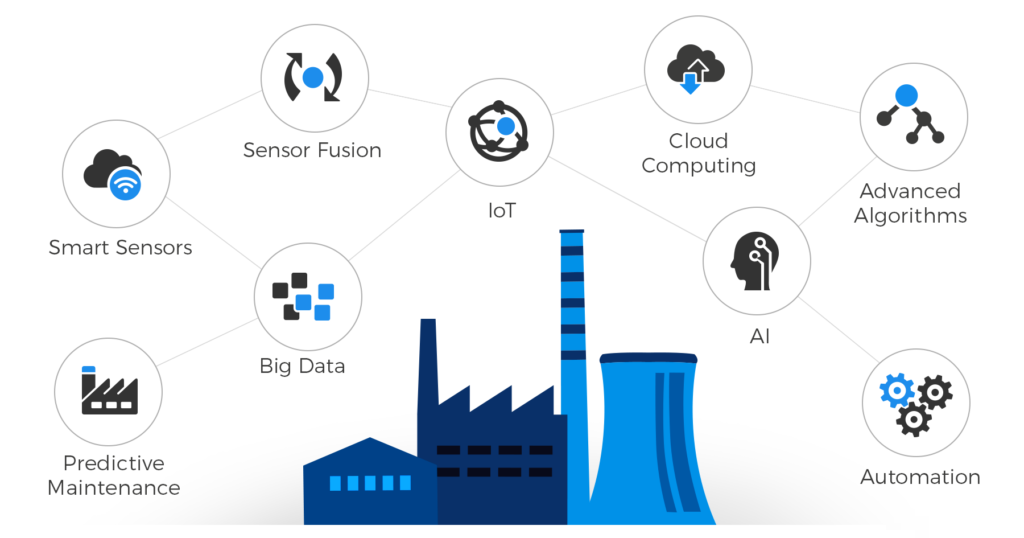Why sensors play an important role for smart factory
Sensors are essential for a smart factory's efficient and automated operations. They collect data on temperature, pressure, humidity, and other critical parameters. This data is then analyzed to optimize production processes, reduce downtime, and improve efficiency. Sensors also enable real-time tracking of inventory, improving supply chain management and reducing waste.

Application of Sensors
sensors are a critical component of a smart factory, enabling manufacturers to achieve higher levels of efficiency, productivity, and profitability.

Sensors have a wide range of applications across different fields and industries, including:
Environmental Monitoring - Sensors can monitor air and water quality, temperature, and humidity levels to help prevent pollution and promote sustainability.
Healthcare - Sensors can be used in medical devices to monitor vital signs, track medication adherence, and detect early signs of illness or disease.
Manufacturing - Sensors can optimize production processes by monitoring equipment performance, detecting defects, and minimizing downtime.
Automotive - Sensors can be used for safety systems like collision avoidance, parking assistance, and lane departure warning systems.
Agriculture - Sensors can monitor soil moisture levels, temperature, and nutrient levels to optimize crop yield and reduce water waste.
Smart home technology - Sensors can control lighting, temperature, and security systems, making homes more energy-efficient and secure.